Electricity network as a mean to overcome isolation and to seed development
Bakachol is an isolated 600 household village in Eastern Nepal, Khotang district, at the foot of the Himalaya, with until 2017 no access to the public road network, no connection to the national electricity grid and no clean water distribution. Bakachol is nestled in the mountains at altitudes between 1,000 and 2,800 meters. Bakachol covers 36 square kilometers and is home to around 3,500 people across 600 households. Agriculture, primarily for self-consumption, is the community’s main economic activity, with limited use of machinery and poor access to outside market or trading places.
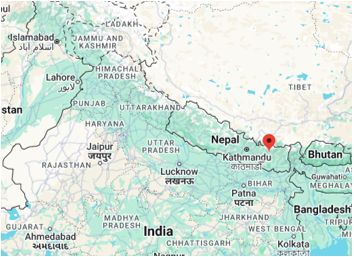
Eventually the people of Bakachol realised that development would not come to them unless they themselves took the initiative to escape isolation. In 2008 Bakachol inhabitants decided to build a local micro hydraulic electricity generation facility and electricity distribution infrastructure. The project called for exploiting domestic resources – manpower and hydraulic potential of local rivers via building a 1km long water duct. However, the initiative required expertise and eventually external support.
Water duct for alimenting the micro-hydraulic electricity generation
Modernization in Bakachol
The village community later organised in the Bakachol Cooperative, has been as of 2012 central to improving the infrastructure of the community. In 2008, Bakachol inhabitants began building their own electricity generation and distribution network, marking a major step toward reducing isolation.
Besides and over the years, local residents initiated various other projects. From 2010 to 2014, an NGO, Eco Himal Nepal, helped establish a water distribution system, giving each household access to water (but requiring individual purification systems to be installed at by households). In 2018 inhabitants built a rudimentary road to connect the village to the national road network. They have also negotiated with mobile operators to improve communication coverage, which was previously almost non-existent. Despite limited government support, the people of Bakachol have shown remarkable resilience and initiative in modernizing their community and building up essential infrastructure.
Bakachol’s electricity journey
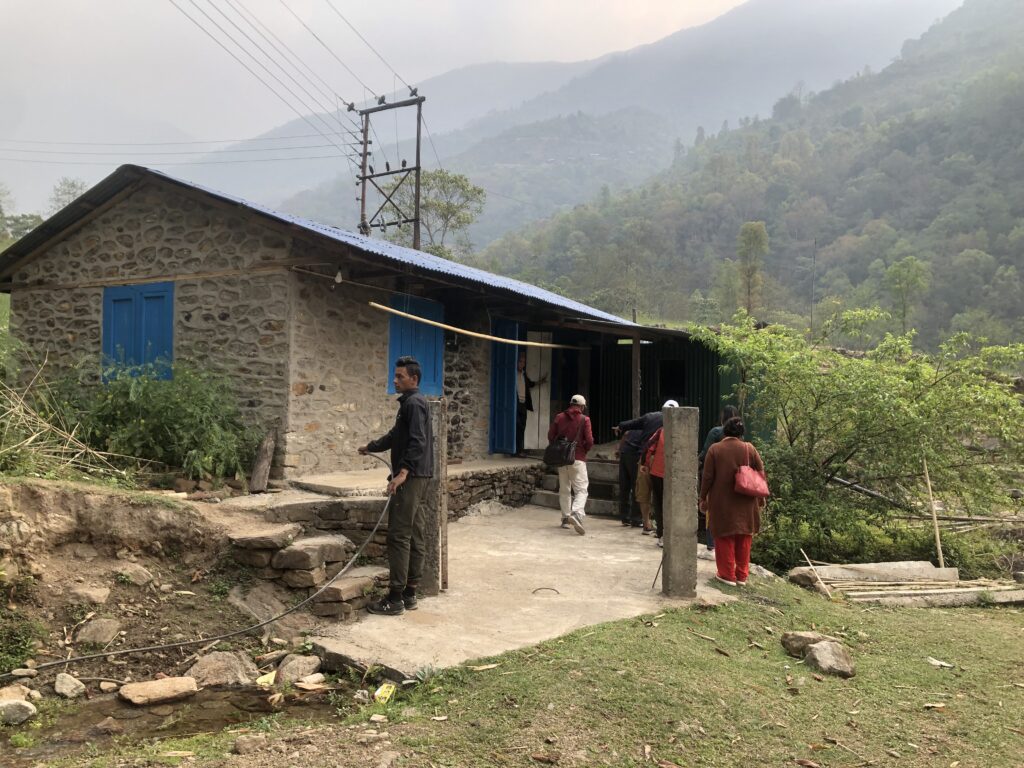
The community took up the electricity project initially in 2008, when they were offered a generator and a turbine by a Norwegian NGO. Further investment funds were obtained from a local authority, and on top of it, the village took a bank loan. All civil engineering work was carried out by the inhabitants of Bakachol.
It took about 3 years to complete this work (including finding a budget to cover costs of transportation of the generator equipment from Katmandu to Bakachol by helicopter as no road connection existed at the time). But eventually, and as of 2012, the electricity network was up and running. School children now had the light to do their homework and agricultural production started investing in equipment such as electrical pumps and mills. Sadly, in 2015 the big earthquake which hit Nepal also affected Bakachol and seriously damaged the power house. The electricity production came to a stand-still.
Germany’s official technical agency for development aid (GIZ) subsequently agreed to cover the cost of repair, and helped organizing a sustainable network management. For instance, the village committed to place a fee for electricity consumption (which so far had been free). This revenue was used to pay-back the bank loan and to aliment a network equipment maintenance fund so far lacking. GIZ also helped Bakachol inhabitants to organize themselves in a Cooperative (eventually legally established in 2018) with a remit to facilitate biological agriculture and to manage the electricity network – and to promote and exploit synergies between these activities.
Repair work on the distribution network by the Bakachol maintenance team
On recommendation of GIZ, the Bakachol Cooperative decided start negotiations with the national Electricity Agency (NEA) with a view to link the local network to the national network grid, thereby enabling Bakachol to sell a surplus of electricity locally produced and enhancing the stability of the electricity provision through the national grid backup.
However, a bottleneck to all these projects emerged in form of the deteriorating condition of the original generator. Its technology was outdated causing frequent breakdowns complicated by the lack of availability of spare parts. The aging generator became increasingly a risk factor with costly repairs and outages, putting at risk all the progress the village had been making.
The obvious solution was to replace the old generator by a new one. However, the cost for a new generator, initially estimated at 10,000 euros, were well beyond the Cooperative’s budget which was at the time still burdened by the bank loan payback. It was at this stage that Bakachol Cooperative reached out to EU can aid! for financial support.
Grant request
The project proposal that we received was very concrete. It foresaw to:
- purchase a new generator with up-to-date technical features and an increased power yield;
- transport the new generator from the delivery point Katmandu to Bakachol;
- adapt the existing powerhouse to accommodate the new equipment;
- install the generator and its control equipment to become operational and feed in the existing distribution network.
By acquiring the new generator, the anticipated benefits were to:
- ensure reliable electricity supply to meet essential household needs (light, communications)
- provide electricity to public facilities such as schools and health centers
- extend the local network to a neighboring village
- support local agriculture by allowing to operate powering machinery
- open the perspective to connect Bakachol to national electricity grid and sell surplus power
This was expected to help stabilize the local economy and improve living conditions for the community, as well as, in the long range, create local job opportunities.
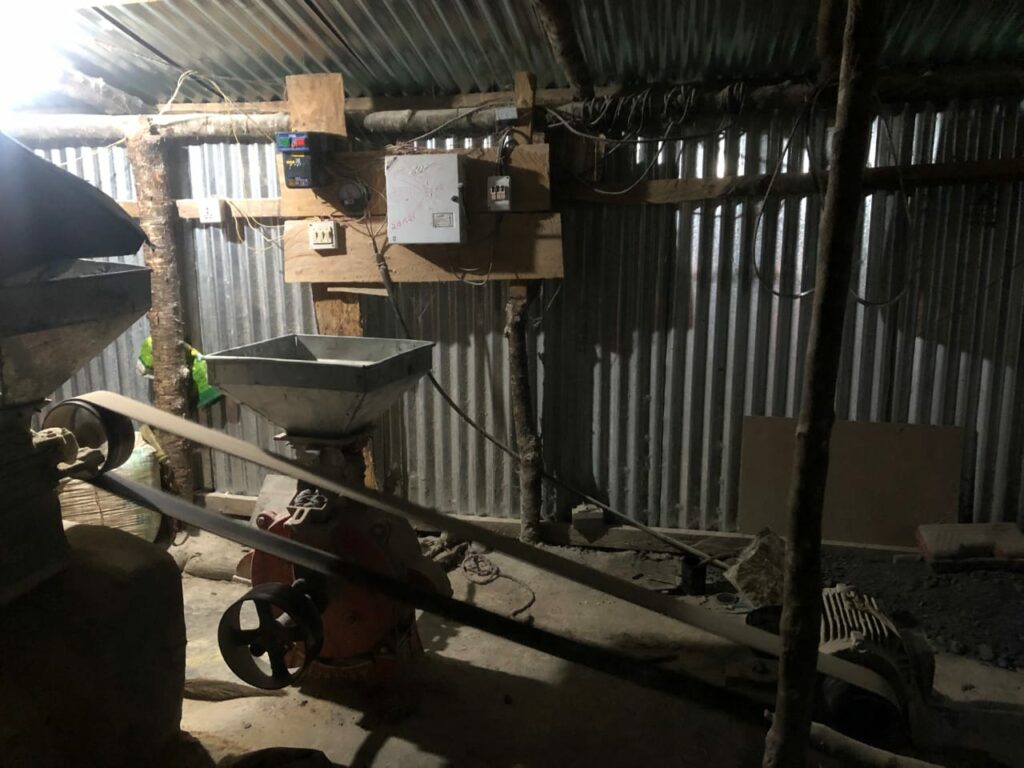
Joint financing effort
The main challenge was to secure an adequate budget for the project EU can aid! agreed to take over the biggest part of the project costs. But since this support volume exceeded the size of typical project of EU can aid! special fund raising events (concerts, marathon) were organized. On the side of Bakachol, actions were launched towards other local parties which were asked to join in. A Katmandu based association of former Bakachol inhabitants, the Motherland Bakachol Welfare Society Nepal („MBWSN“), agreed to offer an interest free loan to back-up the financing of the project. Later on, the Aiselukharka Rural Municipality (to which Bakachol administratively belongs) decided to participate in the general effort of renovation of the Bakachol electricity infrastructure and offered a grant which was partly used for the purchase of the new generator equipment. This collective effort allowed to cover the costs which at the end amounted to 14 000 €. It is noteworthy that some of the Nepalese contributors committed to engage themselves because EU can aid! signaled their support to the project – this was perceived as a sign of trustworthiness of the project undertaking and viability.
In a letter to EU can aid! the Aiselukharka Rural Municipality expressed its satisfaction that a collective financing effort by EU can aid! , the Bakachol Cooperative and the Aiselukharka Rural Municipality allowed to achieve a major and forward-looking step and constitutes an important milestone for the improvement of the local infrastructure.
How did the project unfold?
There were some challenges. The price of the equipment was not negotiable and hence high due to limited number of suppliers in Nepal, all importing the same Indian equipment as there is no generator manufacturing in Nepal.
The generator equipment delivered in Katmandu is loaded for the transport to Bakachol
The remoteness of Bakachol added difficulties too – bad roads and monsoon delayed the delivery of the installation equipment due to of landslides.
Landslide blocking the access to Bakachol and delaying the transport of equipment
However, the project was eventually completed successfully and on time, and allowed the community to overcome the bottleneck to improving the ecosystem and livelihoods, especially related to the potential of new opportunities to the younger generation which so far regularly left the village in the absence of living opportunities in Bakachol.
Upon arrival at Bakachol power house the equipment is unloaded manually
Test run of new generator(July 2023)
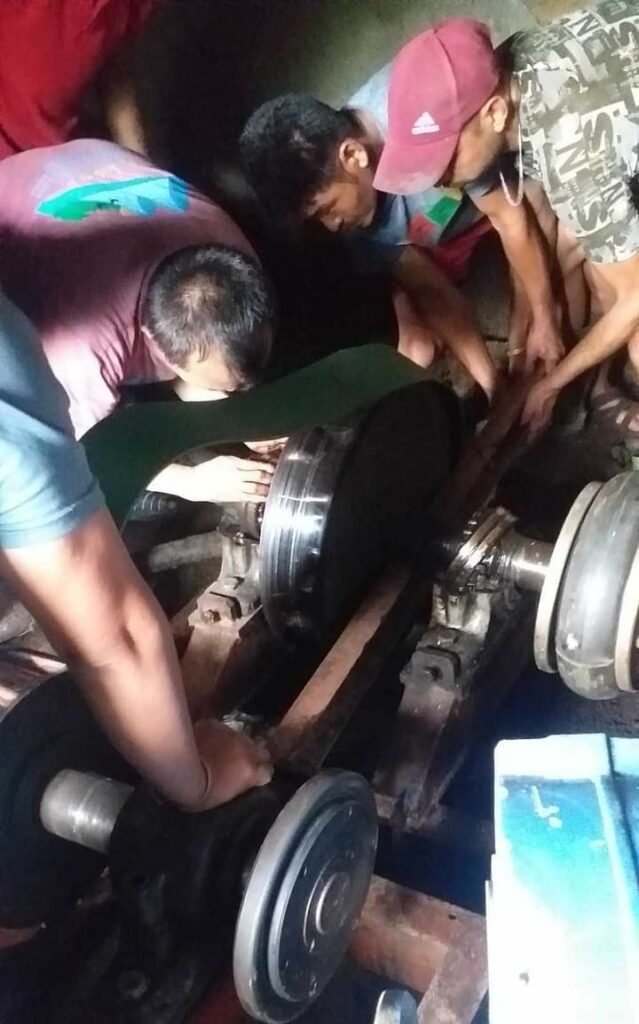
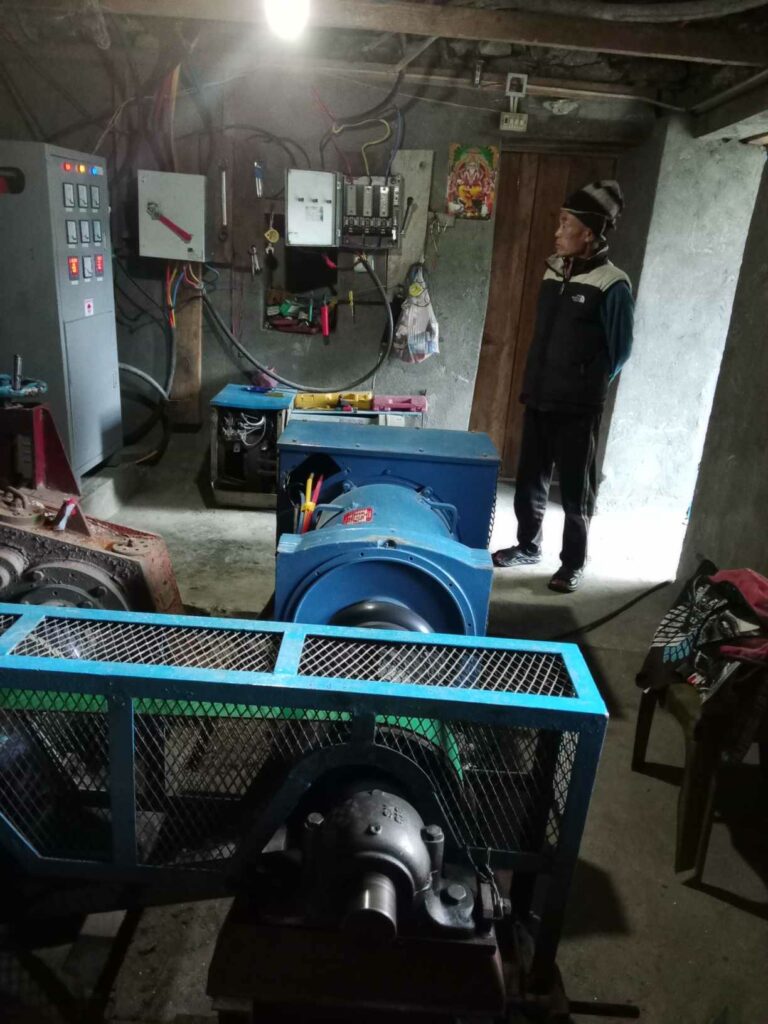
Inside the power house: installing the new generato
Final words from the Bakachol community:
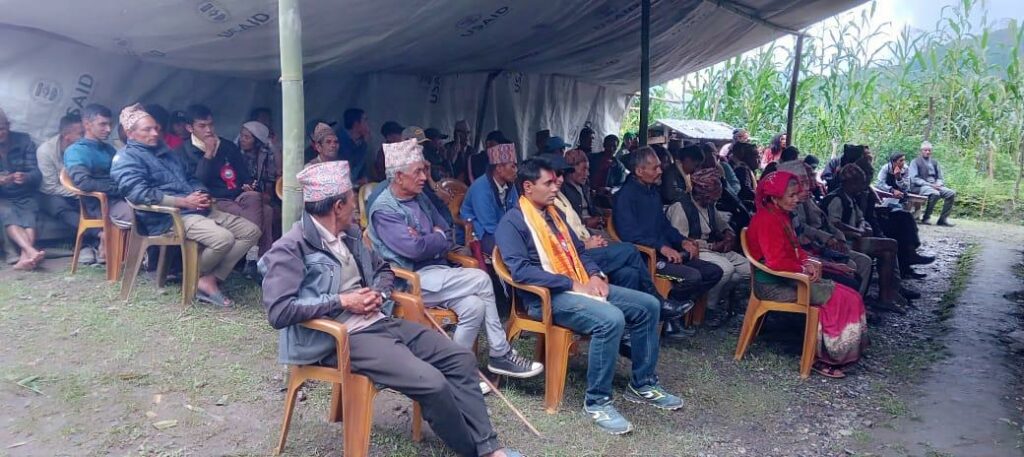
“After we replaced the generator, electricity has been running at full power”. Kumar Tamang, Head teacher, Bauddha Basic School, Bakachol
“Namaste! This contribution is not just a one-time aid, it allows the village to be free from enduring darkness, to access information and communication means. To those who contributed to this project I wish them a bright future in the coming days, good health, long life and steady progress, and I hope for similar support in the coming days as well, we really need it. Thank you.” Binod Rai, Social worker and politician, Bakachol
“All these efforts allowed to bring light to the people of our rural areas by allowing to purchase a new generator and other equipment a few months ago. It should be the first biggest contribution for our village from Europe.” Nanda Kumar Tamang, Ward President (Mayor), Bakachol Ward
“As a farmer I cannot understand all the procedures and how the involved organisations worked together, but I am really happy. We learnt that an organization from Europe helped us to make a great change in form of a new generator. I already have a mushroom farm and a poultry form. I always need the electricity for my poultry farm. I am expressing my sincere gratitude to those who successfully contributed to financing this project. Thank you”. Shinga Bahadur Tamang, farmer
Message from Tika Ram Puri, Member of the Board, Bakachol Cooperative
Message from Gyanendra Kumar, Treasurer, Bakachol Cooperative
Message from Hemkaji Puri, President of the Board, Bakachol Cooperative
